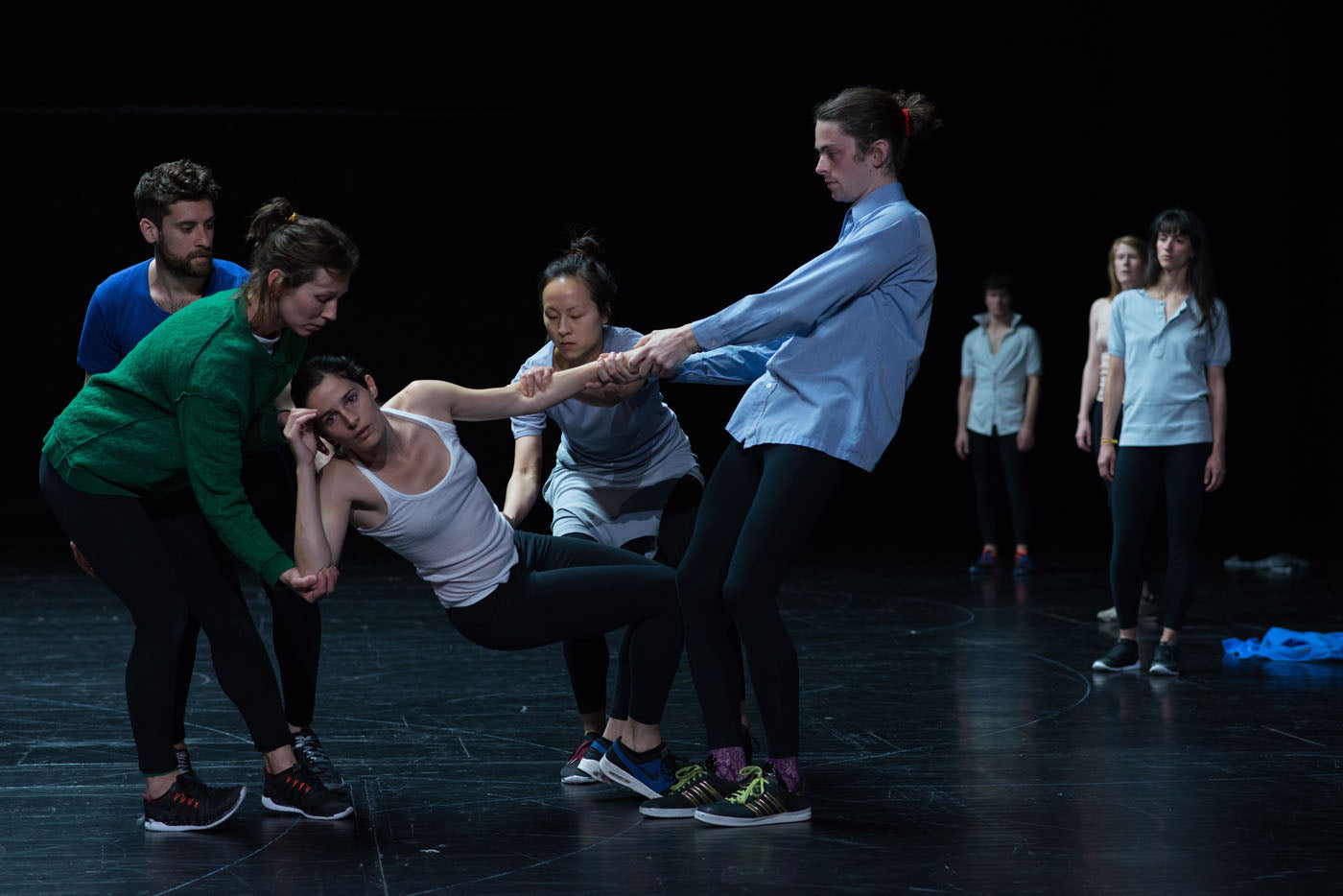Dancing and Screaming Against the Sky
“Profanations,” created by choreographer Faustin Linyekula and music artist Franck Moka, is not a “just” dance piece: it’s a live concert, a cinematic séance.
Continue Reading
World-class review of ballet and dance.
Anne Teresa De Keersmaeker's take on Shakespeare's As You Like It opens on a bare stage. Brian Eno's “Golden Hours” plays on loop, her interpretation of Shakespeare's comedy a meeting between the play and Eno's album Another Green World. The track finishes one cycle without anything happening. When the cast do enter they edge forward, their slow walk barely moving. By the third loop phrases from the song begin to catch the attention, ‘how can moments go so slow?’
Performance
Place
Words

Anne Teresa De Keersmaeker / Rosas' “Golden Hours.” Photograph by Anne Van Aerschot


“Uncommonly intelligent, substantial coverage.”
Your weekly source for world-class dance reviews, interviews, articles, and more.
Already a paid subscriber? Login
“Profanations,” created by choreographer Faustin Linyekula and music artist Franck Moka, is not a “just” dance piece: it’s a live concert, a cinematic séance.
Continue ReadingWhen Alban Lendorf (b. 1989) was four, he became attentive to the piano. As he explained in an interview with Pointe magazine, when his lessons advanced to the learning of a Chopin waltz, his piano teacher suggested he take dance classes to help open up the music. From the school of The Royal Danish Ballet to the company, his career rocketed forward; by the time he turned twenty-one, he was a principal dancer, still playing the piano and testing a latent gift for acting.
Continue ReadingMarie Antoinette is not an entirely sympathetic character. Her penchant for luxury and extravagance—and the degree to which she was out of touch with the lives of the majority— made her a symbol of the wealth disparity that prompted the French Revolution.
Continue ReadingAscending the Guggenheim Museum's rings through Rashid Johnson's retrospective, “A Poem for Deep Thinkers,” is a dance in of itself.
Continue Reading
comments